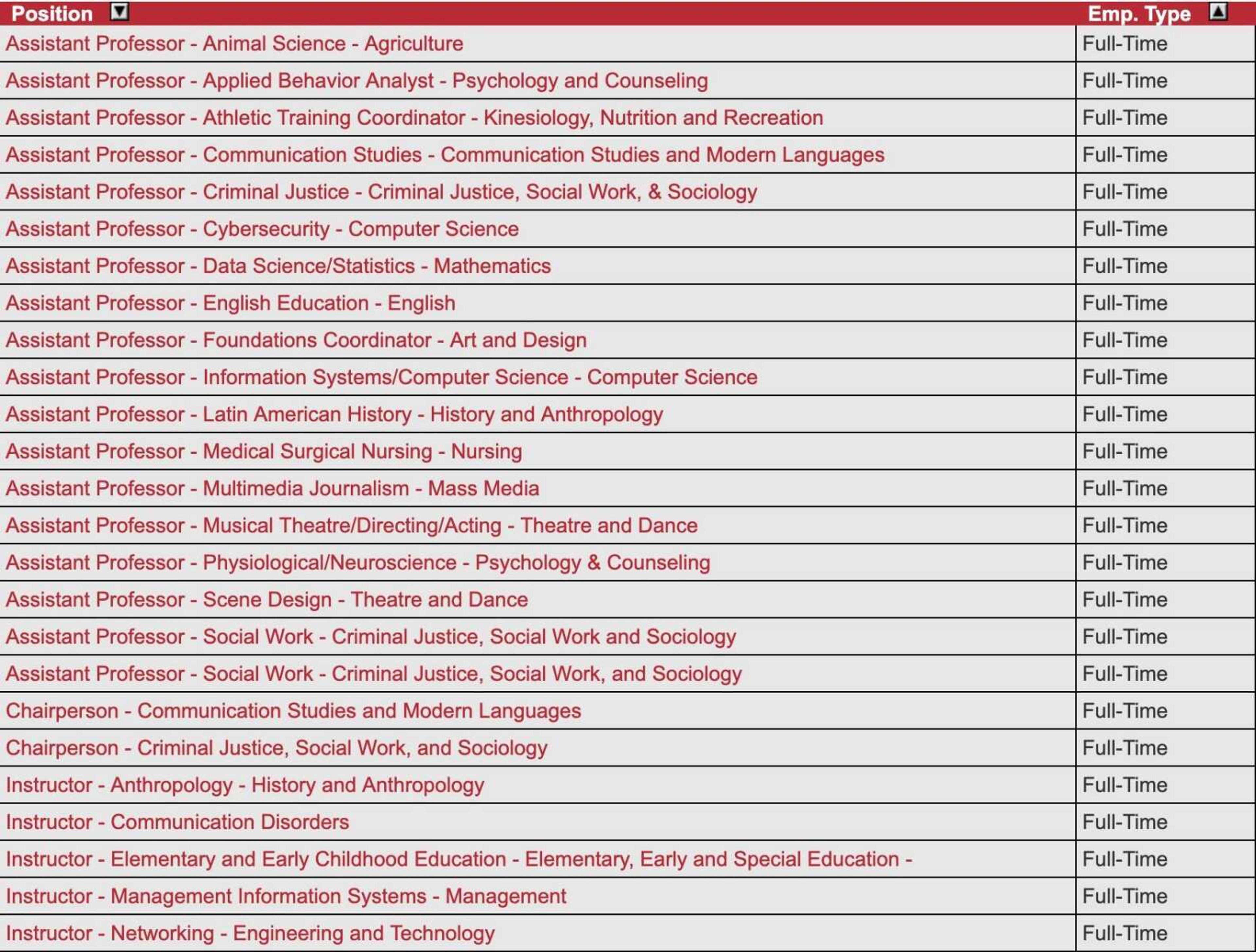Vacant faculty positions and failed job searches root problems for the university
Currently posted on Southeast’s official website is just under 50 job listings for both faculty and staff — the majority of them being vacant faculty positions. In 2017, and more recently in January 2019, Southeast launched two voluntary retirement buyouts. The Voluntary Retirement Incentive Program was introduced after the institution experienced budget cuts that former Missouri Gov. Eric Greitens announced in January 2017...
Currently posted on Southeast’s official website is just under 50 job listings for both faculty and staff — the majority of them being vacant faculty positions.
In 2017, and more recently in January 2019, Southeast launched two voluntary retirement buyouts. The Voluntary Retirement Incentive Program was introduced after the institution experienced budget cuts that former Missouri Gov. Eric Greitens announced in January 2017.
Director of University Communications Ann Hayes said in a statement she is unable to identify which positions are listed as a result of the recent Voluntary Retirement Incentive Programs as that “is a personnel matter.”
She did say the goal is to fill faculty positions by Fall 2019.
As for the number of listings on the website, director of Human Resources Alissa Vandeven said in an email to the Arrow that it’s not unusually large right now.
Vandeven said job searches for faculty are typically conducted in the fall and early spring semesters.
She noted there are times when the university needs to hire instructors for temporary vacancies.
“Sometimes this happens when a regular job search has failed, and we need to find a temporary instructor for the upcoming year, thus another job posting,” Vandeven said.
The hiring committee assesses the strengths and weaknesses of candidates and shares this with the department chair who makes a hiring recommendation. Then they send this recommendation up the chain for approval, professor of history Eric Clements said.
While Clements is not on any hiring committees he said the reason for failed searches at the university could have something to do with the timeliness of the application process.
“It seems like it takes a long time to get this process worked through,” he said. “It’s kind of critical that you close the deal.”
There are ample amounts of money spent to execute this process, Clements said — to fly the candidates to Cape Girardeau if need be, put them up in a hotel and even take them out to dinner one night.
“Ideally, you try to get as many faculty as possible to see this person,” he said. “When they come in there’s a teaching demonstration and then they also do a research presentation. Basically, each candidate spends a day on campus.”
Clements noted not only the amount of work that goes into the searches, particularly the committee chairs who have to write the recommendations, but the “internal amount of money being chewed up” as well.
“The problem is, we spend significant amounts of money, and I mean, thousands of dollars doing these searches,” Clements said. “And if we don't get anything out of it — if we don't get the hire out of it — it's a failed search at that point. And so that money is essentially wasted.”
Clements said the rest of the process used to take two weeks once it reached administration.
Associate professor of management Erin Rae Fluegge said the Management Department had a prospective candidate who wanted to come to Southeast, “and they couldn’t wait any longer.”
Fluegge said failed searches have an impact on the students at Southeast, noting that faculty are looking out for the students when hiring.
“We have awesome adjuncts here,” she said. “That's wonderful that we have people in our community that can step in because that's probably what's going to happen at this point.”
Clements noted that because the applicants are academics, they’re on calendar rotation.
“Musical chairs gets played in April and May,” Clements said. “The music's going to stop and [the candidates] have to have a chair come September.”






